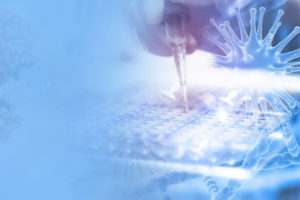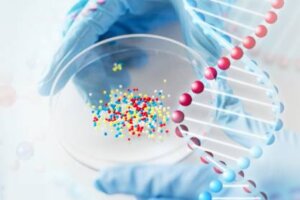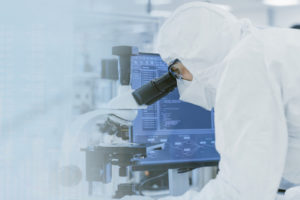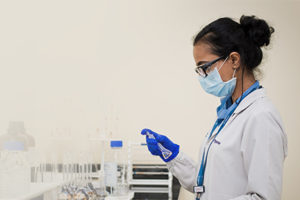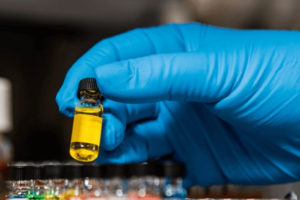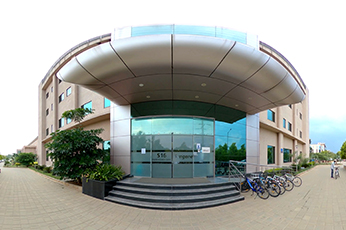High-quality iPSC products and services for accelerated drug discovery
Induced pluripotent stem cells (iPSC)-based disease modelling has revolutionized the ways in which we explore the mechanisms of human diseases and develop therapies. While iPSCs offer an attractive and robust in vitro disease model for novel drug development, their genetic instability, heterogeneity, and quality control remain a matter of concern. At Syngene, we have successfully generated high quality iPSCs followed by extensive characterization to ensure quality of the final clones and their derivatives.
With our experience and expertise in this area, we provide solutions to generate feeder free and viral integration free iPSC clones meant for cellular assays and screening. We perform iPSC reprogramming, characterization, gene editing using CRISPR and advanced nucleases, differentiation of iPSCs into multiple lineages and in vitro assays using iPSC derivatives or primary cells. We also have expertise in CAR-T platform. To know more, click here.
- iPSC products
- iPSC services
- Applications
Our iPSC product offerings
- iPSC reprogramming – Integration free (Sendai, episomal); feeder free from healthy or diseased patients
- Guaranteed high reprogramming efficiency
- Well established SOPs to generate high quality iPSCs; experience in generating CAR-T, neuronal and cardiomyocyte lines
- Extensive QC and CoA preparation for every batch to produce consistent results
- Carefully monitored LN2 storage to ensure >80% cell viability upon thawing
- Tie-ups with local hospitals for availability of diverse starting material for iPSC reprogramming
- Well established donor network, including sample collection procedure
- Extensive screening processes for each donor sample to ensure high sample quality
- Availability of automated cell banking for systematic storage of donor samples
Syngene’s iPSC product range
Representative phase contrast images and molecular characterization by immunocytochemistry (ICC) for pluripotency check of iPSC lines developed at Syngene
We offer different levels of services ranging from custom iPSCs generation to gene editing and differentiation of iPSCs into multiple lineages to help you with disease-specific cell models, developing precision medicines and for accelerating your research.
Steps for generating and delivering custom iPSCs
Gene Editing
Using CRISPR licensed technology we provide gene editing services in iPSC cells that involves gene knock-out and knock-in for disease modelling, allogenic therapies, and reporter cell line generation for drug screening.
Our Gene editing platforms
- Autologous and allogenic cell lines for disease modelling and drug screening
- Cas9 based genome editing
- Lentivirus/AAV-based gene editing
- Expertise in gene/base editing
- Single cell biallelic KO clones- monoclones/bulk-pool
- Tagged reporter cell lines for drug screening
- CAR-T, TCR-T modulation of immune cells
CRISPR capabilities
Our CRISPR package includes gRNA designing, KO generation, validation, and assays. We have extensive experience in multiple gene knock-outs in iPSCs and generating allogenic CAR-iPSCs for CAR-T cell therapy. Representative data of creating double KO with >90% efficiency using Cas9 in iPSC cell line is shown below:
Knock out generation using CRISPR Cas9 in several iPSCs and primary cells.
Differentiation of iPSCs into multiple cell lineages
We offer services for differentiation of iPSCs into multiple cell lineages including cardiomyocytes, neural stem cells, Neurons, astrocytes, hematopoietic stem cells, T cells etc.
iPSC assays
Our assay development team offers a broad range of in vitro assays on iPSCs and primary cells.
- Cell-based assays
- Immune assays
- Drug screening
- 3D spheroids
- Disease modeling
Our range of iPSC-derived cell-based assays
Syngene’s iPSC-derived cell-based and immune assays and their readouts
Drug screening
- Drug screening in high throughput format (96/384 well format)
- All assays validated using established quality checks (plate uniformity, reproducibility, signal:noise ratio, Z’ prime)
- Deliverables in the format of ready-to-present/publish
- In-house cell repository available for screening purposes
- Automated liquid handing/pipette stations available for reproducible results
Disease modeling
- iPSC generation from specific disease donors and redifferentiating into desired cell lineage for research purpose or screening of novel drugs
- iPSC generation from healthy donor and introducing distinct mutation to model a particular disease
- Induce the iPSCs derived from healthy donors using specific media stimulation or exogenous stimulus to mimic the disease state
